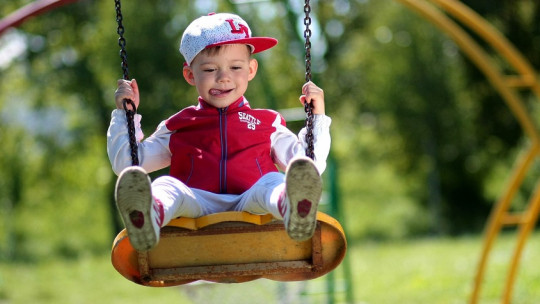
Since Howard Gardner unveiled his theory of multiple intelligences in 1993 and Daniel Goleman published his book “Emotional Intelligence” in 1995, a new paradigm has opened in research that aims to study which factors are really related to the level of academic performance.
Leaving aside the traditional conception of the early 20th century about the value of IQ as the only predictor of intelligence in schoolchildren, let’s analyze what science shows about the link between the nature of self-concept and school results.
Academic performance: what is it and how is it measured?
Academic performance is understood as the result of the student’s ability to respond and learn internalized as a result of the confluence of various factors as can be deduced from most constructs in the field of psychology or psychopedagogy.
Among the internal factors, motivation, the student’s abilities or self-concept stand out, and among those external to the individual, we find the environment, the relationships established between the different contexts and the interpersonal relationships inscribed in each of them. Furthermore, other aspects such as the quality of the teacher, the educational program, the methodology used in a specific school, etc., can also be decisive in the learning acquired by students.
How to define the concept of academic performance?
There are various definitions provided by the authors of this field, but There seems to be a consensus in classifying performance as a measure of obtaining knowledge and knowledge assimilated by the student which is why it becomes the final objective of education.
For example, the authors García and Palacios give a double characterization to the concept of academic performance. Thus, from a static view it refers to the product or result of the learning obtained by the student, while from the dynamic point of view, performance is understood as the process of internalization of said learning. On the other hand, other contributions suggest that performance is a subjective phenomenon subject to external assessment and is assigned to goals of an ethical and moral nature in accordance with the social system established at a certain historical moment.
Components of academic performance
1. Self-concept
Self-concept can be defined as the set of ideas, thoughts and perceptions that the individual has about himself Therefore, the self-concept should not be confused with the “I” or with “the self” in its entirety; It’s just a part of it.
Self-concept and self-esteem are not the same
On the other hand, a distinction must also be made between self-concept and self-esteem, since the latter also becomes a component of the former. Self-esteem is characterized by its subjective and evaluative connotation on self-concept and is shown through behavioral manifestations consistent with the values and principles of each person.
In other words, a more recent meaning, such as that of Papalia and Wendkos, contemplates the link between the individual and society, understanding self-concept as a construct based on the relationships that each subject maintains with their environment and social beings which the latter includes.
Self-concept from a cognitive dimension
For their part, Deutsh and Krauss provide a meaning of a cognitive organization system to the self-concept, which is responsible for ordering the individual regarding relationships with his interpersonal and social environment Finally, Rogers differentiates three aspects of the self: the evaluative (self-esteem), the dynamic (or force that motivates the coherent maintenance of the established self-concept) and the organizational (oriented to order hierarchically or concentrically the multiple descriptions of the elements with which it interacts). the subject and also those corresponding to his individual self).
Thus, it seems to be accepted that there are various external factors that can determine the nature of the self-concept of each individual: interpersonal relationships, the biological characteristics of the subject, the parental educational and learning experiences of the first childhood stage, the influence of the social system and cultural, etc.
Factors to develop a good self-concept
The contributions of Clemes and Bean indicate the following factors as fundamental for the development of self-esteem and self-concept is carried out properly:
Correlation between academic performance and self-concept
The research carried out and presented in the text leads to drawing the following conclusions in reference to the relationship between self-concept and academic performance: the correlation between both elements is significantly positive although three types of relationship between both concepts can be distinguished.
The role of family education
As previously indicated, the type of family system and dynamics established on educational guidelines and values transmitted from parents to children and between siblings becomes a fundamental and determining aspect in the construction of the child’s self-concept. As reference figures, parents must dedicate most of their efforts to teaching appropriate and adaptive values such as responsibility, autonomous capacity in decision-making and problem solving, the sense of effort invested, determination and work to achieve goals. goals, as a priority.
In second place, It is very important that parents are more oriented towards offering recognition and positive reinforcement to the appropriate behavioral actions carried out by the children, to the detriment of focusing on criticism of those aspects that are more negative or susceptible to improvement; Positive reinforcement has greater power than punishment or negative reinforcement in relation to the acquisition of behavioral learning. This second point is decisive in the type of attachment established between parents and children, since the application of this methodology facilitates a deeper emotional bond between both parties.
The third element lies in the promotion of social relationships with peers (friendships) and other people in the interpersonal environment, as well as the structuring and balance in the use of leisure time so that it is enriching (based on the variety of types of activities) and satisfying in itself; being understood as an end instead of a means. In this aspect, parents have limited room for maneuver since the choice of the peer group should come from the child. Even so, it is true that the type of environment in which the child interacts and develops is more subject to more conscious choices and preferences, so parents can relatively take sides in selecting one type of context ahead of others.
As a last important factor, The knowledge and establishment of a series of effective study guidelines that facilitate the student’s academic performance must be taken into account Although it seems more frequent than expected that the decrease or alteration of school results is derived from factors other than this (such as all those mentioned in previous lines), the fact that parents can transmit and enforce certain rules in The child’s study habits are of vital importance in obtaining adequate qualifications (establishment of a fixed study schedule, creation of an adequate work environment at home, promotion of active autonomy in solving their school tasks , reinforcement of achievements achieved, having the support of the teaching team, being consistent in the instructions transmitted, etc.).
In conclusion
The previous lines have shown a new conception in reference to the aspects that determine obtaining good results at the school level. Research has incorporated elements other than intellectual capacity extracted from IQ as possible predictors of academic performance.
Thus, although there is no clear consensus on the exact relationship that exists between self-concept and students’ qualifications (which phenomenon causes the other), It seems clear that the link between both constructs has been validated by different expert authors in the field The family, as the main primary socializing agent in childhood, plays a very important role in the formation and development of the image that the child creates about himself.
In this way, priority should be given to the application of educational guidelines that facilitate the achievement of this goal, such as those that have been presented throughout this text.








